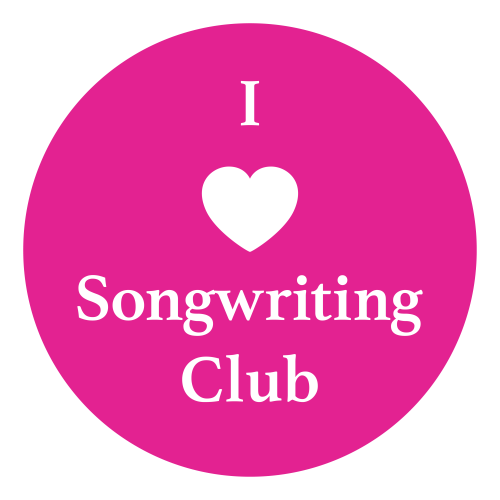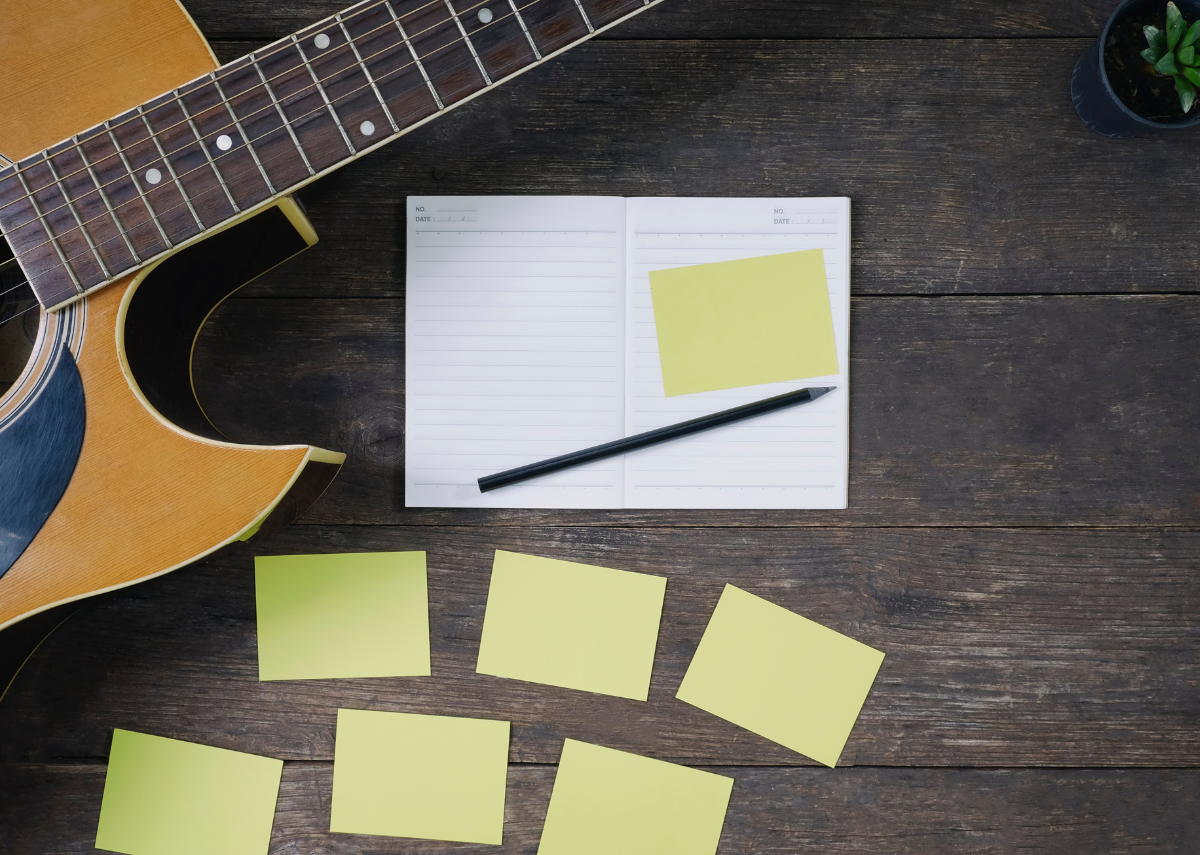10 Tips to Alleviate Songwriting Boredom
Based on the content of Episode 11, The Magic of Songwriting with Francesca de Valence
Feel bored and stagnant in your songwriting? Discover 10 musical and lyrical tips to alleviate songwriting boredom and keep your writing practice fun and vibrant. Let’s face it, you’ve got to be writing to write your best songs yet!!
How you feel about your songwriting can be a changeable thing. One day you’re celebrating writing a great song, and then the next you feel bored and stagnant in your writing. When you go to write, things aren’t gelling like they used to, it’s harder to focus, you’re singing all the same melodies, writing about all the same things, using all the same chords. There’s nothing new to write about or nothing interesting to write about.
This may be accompanied by some non-helpful thoughts along the lines of: this is boring, I’m not getting anywhere, nothing’s worth writing about, I should be able to do this, what’s my problem?
These thoughts will likely affect how you show up to your practice, or NOT show up to your practice. For some people, this can result in long spurts of not writing at all. At this point, it can feel like a big problem. But at the beginning, before it was a big problem, it was just a niggly feeling of boredom, a sense that there wasn’t something to write about.
What if you could use this feeling of boredom to help you grow and become a better songwriter?
Boredom and stagnancy tend to be very convenient cover ups for judgment and expectation which never leads to flourishing. But looking at it in a more curious way, boredom can quite clearly show you where your next growth opportunity is.
What is this boredom really telling you? Are you saying that you’ve got nothing to write about or are you telling yourself you don’t like what you’re writing? Or are you saying that you’re writing the same things and that writing the same things is not okay? Or maybe you’re saying that you feel stuck in your skillset and what you really want is to develop your skills?
Feeling bored and stagnant is the first sign that something needs to change and shift BEFORE it becomes a really big block and a really big problem. And that change and shift involves growing not walking away.
In the podcast audio, we help you cultivate a mindset ready to try new things. So if you feel you need the mindset support, please listen to the podcast episode. But if you’re ready to dive into our 10 tips to alleviate songwriting boredom, here they are. This list is perfect for you if you’re ready to make songwriting a whole lot more fun, to discover new things, and write your best songs yet.
Try these 10 Tips to Alleviate Songwriting Boredom
1 – Use songwriting prompts
Want to change your approach to songwriting in a new way each time? Use songwriting prompts and guidelines. Prompts will get you thematically writing things you otherwise may not write, which changes your approach to lyrics. There’s no getting bored or stagnant when each song is approached so differently. Need songwriting prompts, get them each week in The Club.
2 – Tune your instrument in a new way
Writing in open guitar tunings can create new and exciting opportunities for your writing. The different tunings create a new landscape for your harmony and melody. There are many popular open tunings, like Open A, Open D, Open G and Open C, and other non-open tuning, like Dropped D. You can even make up your own tuning.
3 – Write in a stream of consciousness or use methods of free writing or automatic writing
If you’re a craft-focused lyricist, flex your creative muscles through writing words without consciously writing words in stream of consciousness practice. It can be a surprise and revelation to discover what comes out. You can then craft and shape what you have just revealed if you choose, though sometimes, it may not need much crafting.
4 – Write over samples and loops
Regardless of your skill, experience and confidence on your DAW, samples and loops are easily accessible and are a quick and simple way to approach your songwriting in a completely new way. This can be a great way to support writing at new tempi and with new grooves, especially if you’re a serial ballad writer.
5 – Pick a chord progression from another song that you love, and write a completely new melody over the top.
This will likely challenge you to create melodies in a new way and unattach from the known melody. It also makes a really fun guessing game at gigs/songwriter circles.
6 – Write on an instrument you don’t play
Being in the sound frequency of a new instrument, can open you up to writing in new ways. Having little experience playing chords on this instrument, might force you to keep things simple. For example, you might stay on one chord for longer than you might usually, creating a different feeling of tension and resolution. Or perhaps even allowing rhythm and groove to be the star!
7 – Saturate your song with one kind of lyrical device
Pick one kind of lyrical device. Some examples of lyrical devices are cliché, metaphor, alliteration. Write a list of as many of these as you can. And use as many as you can in your lyric. Whilst it may not be your final lyric, this can be great for simply exploring new devices.
8 – Learn a new strumming pattern on your instrument
Always wanted to write a reggae song, or want to learn a new style of fingerpicking? Take a guitar tutorial on YouTube to teach yourself something new on your instrument. Then write a song around what you learn in the tutorial.
9 – Create your melody on an instrument rather than using your voice
This tip will completely change up how you write melodies. If you’re a piano player, try playing chords with your left hand (or even a bass line) and the melody with the right hand. Any limitations you have on an instrument can cause you to approach your melody in a new way!
10 – Share with a songwriting community
Listening to how other songwriters approach songwriting is so powerful especially as we often only hear the finished products once it’s released to the world. Be part of a songwriting community where you can hear brand new works in progress and learn from the process of others. You might also like to try co-writing, which will allow you to learn how others approach songwriting in real time.
Remember, boredom and stagnancy are just transitional states and you can shift that feeling by doing something different. Instead of reacting and judging yourself for this block, use boredom and stagnancy to reflect on where you’re at and spark a new level of creativity, so that you can reclaim your songwriting power and write your best songs yet!
Episode Show Notes:
Get your creativity, confidence, and songwriting output flowing. Join The Club and receive the support and structure to write 10 songs in 10 weeks and get feedback from a private peer community. This is THE essential writing practice that has changed the careers and lives of 1000s of songwriters worldwide.
Just getting started on your songwriting journey and need more hands-on support? Establish a firm foundation and develop your musical and lyric skills with our Beginner Songwriting Courses. They are the perfect place to begin and cover everything you need to know to write your first songs. You’ll receive lessons from Francesca directly!
Don’t struggle to write your next album – write an album a year with ease! Watch our Free Songwriting Masterclass.
Want more for your songwriting but don’t know where to go from here? Take the I Heart Songwriting Club Quiz to discover your next steps and inspire your way to writing better songs.
Get songwriting insights from I Heart Songwriting Club:
Be inspired by Francesca on socials:
Podcast theme song: “Put One Foot In Front Of The Other One” music and lyrics by Francesca de Valence
If you love this episode, please subscribe, leave a review and tell everyone you know about The Magic of Songwriting.




